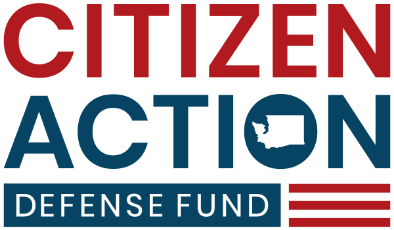https://citizenactiondefense.org/app/uploads/2023/10/231009a-AC-Brief-for-efiling.pdf
https://citizenactiondefense.org/app/uploads/2023/10/231016-Press-Release-re-Quinn-FINAL.pdf
Olympia, Washington — October 16, 2023 — The Citizen Action Defense Fund (CADF), accompanied and supported by some of the most influential business associations in the state, filed an amicus brief in support of a petition to obtain review of the Quinn v. State of Washington case. The brief outlined the legal and practical difficulties posed by the Capital Gains Tax, including the severe risk of double taxation, the operational hurdles faced by businesses attempting to comply with the tax, and the dangers of allowing states to implement an excise tax outside their borders.
CADF is proud to be joined by the Association of Washington Business, the National Federation of Independent Business Small Business Legal Center, Inc., the Washington Trucking Associations, and the Ethnic Chamber of Commerce Coalition in asserting these arguments. In addition, the Opportunity for All Coalition provided financial support for the brief. The Capital Gains Tax case has drawn national attention due to its unconstitutionality and its negative implications for individuals, businesses, and the hardworking employees of Washington State.
As pointed out in the brief, this tax not only creates a risk of double taxation, but it is incredibly difficult to implement, especially for the thousands of businesses operating in more than one state.
“The Capital Gains Tax is not just bad law – it’s bad policy for businesses and workers. Washington lawmakers have once again found a way to disadvantage Washington-based residents and job creators, this time with a tax scheme that inflicts an additional burden for those choosing to live in our state. This tax is not imposed on the same transactions for residents outside of the state, making it both practically and legally defective,” said Jackson Maynard, Executive Director of CADF.
“The state supreme court decided that it is an excise tax. The problem is that states aren’t allowed to tax transactions outside their borders.” Maynard continued, “The bottom line is that because this tax is unconstitutional and negatively effects businesses, the U.S. Supreme Court should grant review and take another look at the state supreme court decision here.”
For more information:
Jackson Maynard
Executive Director
Office: (850) 519-3495

